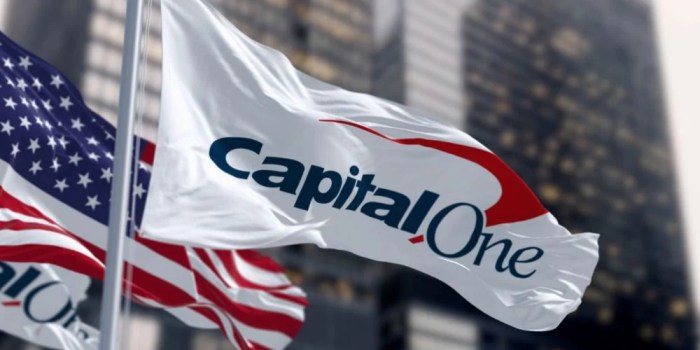Capital one cd fdic insured – Choosing the right savings vehicle is crucial for securing your financial future. Certificates of Deposit (CDs) offer a relatively safe and predictable way to grow your savings, but understanding the intricacies of CD insurance is paramount. This comprehensive guide delves into the specifics of Capital One CDs and their FDIC insurance coverage, providing you with the information you need to make informed decisions.
Understanding FDIC Insurance
The Federal Deposit Insurance Corporation (FDIC) is an independent agency of the U.S. government created in 1933 to maintain stability and public confidence in the nation’s financial system. Its primary role is to insure deposits in banks and savings associations. This insurance protects depositors from losses if their bank fails. It’s a crucial safety net for consumers.
How FDIC Insurance Works
FDIC insurance covers deposit accounts, including checking accounts, savings accounts, and, importantly, Certificates of Deposit (CDs). The standard coverage amount is $250,000 per depositor, per insured bank, for each account ownership category. This means that if a bank fails, the FDIC will reimburse depositors up to this limit. However, there are nuances to this coverage, which we will explore further.
Ownership Categories and FDIC Coverage
The FDIC’s coverage limits are based on ownership categories. This means that you can have multiple accounts at the same bank and still be fully insured, as long as they fall under different ownership categories. Common categories include:
- Single accounts
- Joint accounts
- Revocable trust accounts
- Irrevocable trust accounts
- Retirement accounts (e.g., IRAs)
Understanding these categories is vital for maximizing your FDIC insurance coverage. For instance, a joint account with your spouse would have a separate $250,000 coverage limit from your individual account.
Capital One CDs and FDIC Insurance
Capital One offers a range of CDs with varying terms and interest rates. A crucial question for potential investors is: Are Capital One CDs FDIC insured? The answer is generally yes, but it’s essential to understand the specifics.

Source: thestockdork.com
Capital One Bank (USA), N.A. is a member of the FDIC. This means that deposits in Capital One Bank accounts, including CDs, are generally insured up to the standard $250,000 limit per depositor, per insured bank, for each account ownership category. However, always verify the specific bank holding your CD, as Capital One may have different banking entities. Check your account statements or the Capital One website for confirmation.
Types of Capital One CDs, Capital one cd fdic insured
Capital One offers various CD options to cater to different financial goals and risk tolerances. These might include:
- No-Penalty CDs: Offer flexibility with early withdrawal options, although this might come with a penalty.
- Traditional CDs: Fixed-term CDs with a specified interest rate and maturity date. Penalties usually apply for early withdrawals.
- High-Yield CDs: Generally offer higher interest rates than traditional CDs but may have longer terms.
Each type of CD will have its own terms and conditions regarding interest rates, penalties, and maturity dates. Carefully review these details before investing.
Maximizing Your FDIC Coverage with Capital One CDs
To ensure your Capital One CDs are fully protected by FDIC insurance, consider these strategies:
- Diversify your accounts: Spread your deposits across different ownership categories to maximize your coverage. For example, having separate individual and joint accounts can significantly increase your insured amount.
- Use different banks: If you have more than $250,000 to invest in CDs, consider spreading your investments across multiple FDIC-insured banks, including Capital One and other institutions.
- Regularly review your accounts: Stay informed about your FDIC coverage and ensure your accounts remain within the insured limits.
- Understand the terms and conditions: Before opening any CD, carefully read the terms and conditions, paying close attention to interest rates, penalties, and maturity dates.
Frequently Asked Questions (FAQs)
- Q: What happens if Capital One Bank fails?
A: If Capital One Bank fails, the FDIC will insure your deposits up to the maximum coverage limit per depositor, per insured bank, for each account ownership category. You would receive your insured funds within a few days.
- Q: Are all Capital One accounts FDIC insured?
A: Generally, yes, but it’s crucial to verify that the specific bank holding your account is a member of the FDIC. Check your account statements or contact Capital One directly for confirmation.
- Q: How can I check my FDIC insurance coverage?
A: You can use the FDIC’s online tool, EDIE (Electronic Deposit Insurance Estimator), to estimate your coverage. You can also contact Capital One directly or review your account statements.
- Q: What if I have more than $250,000 in a Capital One CD?
A: Only $250,000 per depositor, per insured bank, for each account ownership category is FDIC-insured. You should consider spreading your investments across multiple FDIC-insured banks to protect your entire investment.

Source: ptmoney.com
- Q: What is the process for claiming FDIC insurance?
A: The FDIC will generally contact you directly if your bank fails. They will handle the process of reimbursing your insured deposits. You don’t typically need to actively file a claim.
Conclusion
Understanding FDIC insurance is crucial when investing in CDs. While Capital One CDs are generally FDIC insured, it’s essential to understand the intricacies of coverage limits and ownership categories. By diversifying your investments and staying informed, you can ensure your savings are adequately protected.
Call to Action: Capital One Cd Fdic Insured
Ready to explore Capital One’s CD offerings and secure your financial future? Visit the Capital One website today to learn more and open a CD account!
FAQ Corner
What is the FDIC insurance limit for Capital One CDs?
The FDIC insures deposits up to $250,000 per depositor, per insured bank, for each account ownership category.
Can I withdraw my money early from a Capital One CD?
Early withdrawals typically incur penalties, reducing the overall interest earned. The specific penalty will depend on the terms of your CD.
How do I open a Capital One CD?
You can typically open a Capital One CD online through their website or by visiting a branch. You’ll need to provide necessary identification and deposit funds.
What are the different CD terms offered by Capital One?
Capital One offers a variety of CD terms, ranging from short-term options (e.g., 3 months) to longer-term options (e.g., 5 years or more). The specific terms available may vary.
